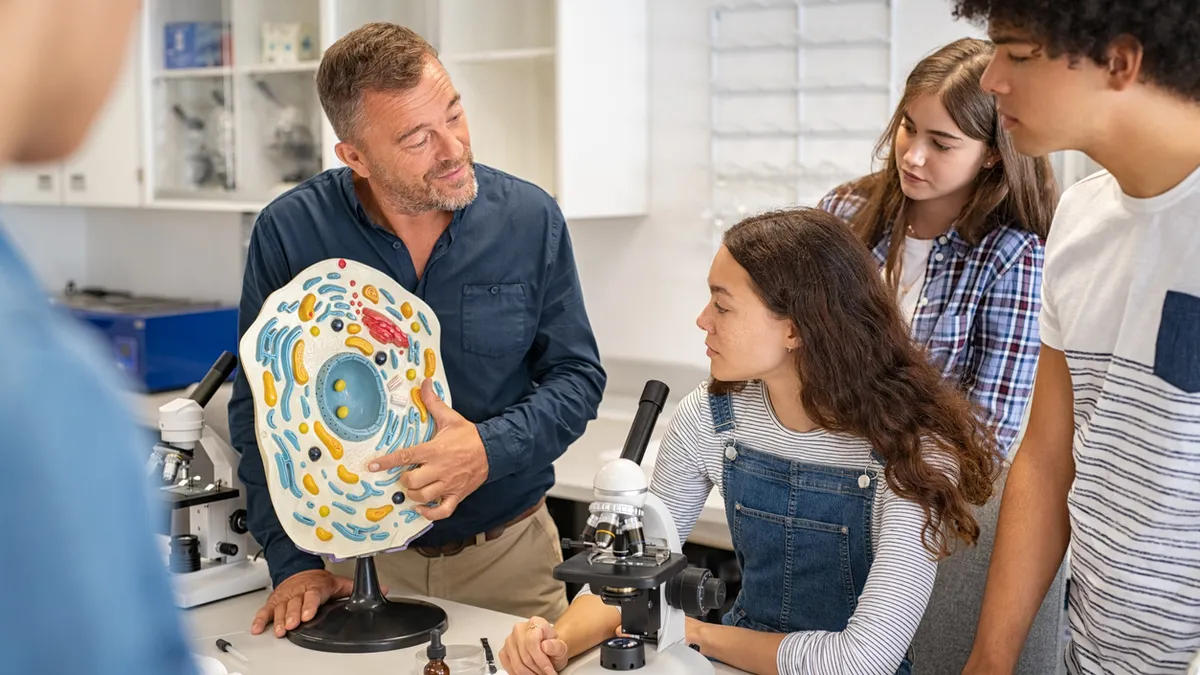Imagine a classroom where students are not passive listeners, but active investigators. They grapple with real-world phenomena, asking questions, conducting experiments, and uncovering scientific principles through their own exploration. This isn't a distant utopia, it's the reality of inquiry-based learning (IBL), a pedagogy transforming high school science education.
Gone are the days of rote memorization and isolated facts. IBL shifts the focus from "what" to "how" and "why," nurturing critical thinkers and problem-solvers who can tackle the challenges of the 21st century. But its impact extends far beyond the classroom, creating a ripple effect that benefits students, teachers, universities, and employers, ultimately strengthening the fabric of our communities.
Why IBL Matters for Students:
- Deeper Understanding: IBL sparks curiosity and fuels intrinsic motivation. Students engage with phenomena, analyze data, and draw their own conclusions, fostering a deeper understanding of concepts and a thirst for lifelong learning. Imagine dissecting an owl pellet, piecing together the predator-prey relationship, not just memorizing textbook diagrams.
- Critical Thinking and Problem-Solving: IBL is a training ground for developing essential 21st-century skills. Students learn to ask probing questions, design experiments, analyze data, and draw evidence-based conclusions. They grapple with ambiguity, troubleshoot challenges, and collaborate to find solutions, all skills vital for success in any field.
- Reaching Every Student: Traditional science education often fails to address the diverse needs and learning styles of all students. IBL, with its emphasis on collaboration, personalized learning, and multiple pathways to understanding, creates a more inclusive environment where every student can thrive. Imagine a classroom where diverse voices are heard, where different learning styles are valued, and where all students can see themselves as scientists.
Empowering Teachers, Transforming Learning:
IBL doesn't just benefit students; it empowers teachers too. By shifting the focus from delivering content to facilitating inquiry, teachers become guides and mentors, fostering a more dynamic and engaging learning environment. This leads to:
- Professional Development: IBL encourages teachers to delve deeper into scientific concepts, explore new teaching strategies, and collaborate with colleagues. This ongoing learning fosters job satisfaction and keeps them at the forefront of educational innovation.
- Personalized Learning: IBL allows teachers to tailor instruction to individual needs and learning styles. They can differentiate instruction, offer diverse learning pathways, and provide targeted support, ensuring no student falls behind.
Building a Future-Ready Workforce, Strengthening Communities:
The impact of IBL extends beyond the classroom walls, shaping the workforce and strengthening communities:
- University and Workforce Readiness: IBL equips students with the skills universities and employers seek most: critical thinking, problem-solving, communication, and collaboration. They graduate better prepared for rigorous academic pursuits and adaptable enough to thrive in an ever-evolving job market.
- Closing Achievement Gaps: IBL offers a powerful tool for closing achievement gaps in science education, particularly for underrepresented groups. By providing equitable access to inquiry-based learning experiences, we can empower future generations of scientists, engineers, and innovators from diverse backgrounds.
- Informed and Engaged Citizens: Science literacy is critical for navigating today's complex world. IBL fosters critical thinking and problem-solving skills, equipping individuals to make informed decisions, participate actively in their communities, and tackle global challenges.
Moving Forward:
The Next Generation Science Standards (NGSS) provide a framework for implementing IBL in high school science, but ongoing support and resources are crucial. By investing in teacher training, developing high-quality curriculum materials, and promoting collaboration between educators, universities, and industry, we can ensure that IBL becomes the cornerstone of an equitable and transformative science education for all.
This article is just the beginning. Download the full whitepaper, ‘The Power of Inquiry: Centering Student Experience and Real Life Application in Science Education’ for more in-depth information on IBL in science education.










